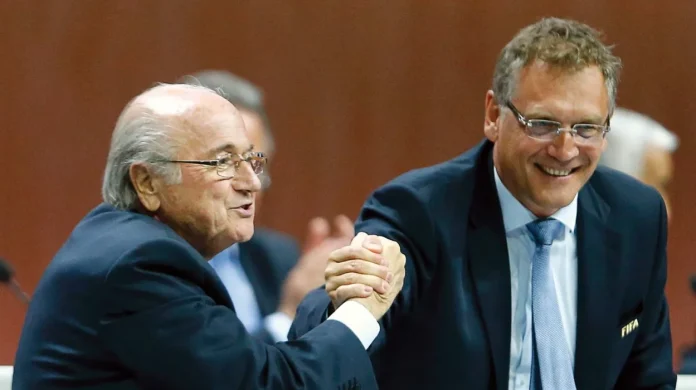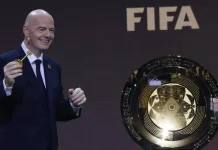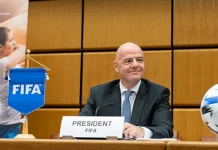One of the most significant governance failures in sports, the FIFA corruption crisis began in 2015 when the U.S. Department of Justice indicted fourteen FIFA and marketing officials for engaging in bribery and kickback schemes using FIFA’s marketing operations, exposing systemic misconduct through a 47-count criminal indictment.
It was revealed to the extent that more than $150 million was paid out over the course of decades as bribes from media rights, hosting tournaments, and sponsorships.
The arrests in Zurich, conducted on the eve of the soccer world governing body, FIFA annual congress, caused shock to the sporting community. FIFA was an institution with over 2 billion dollars in revenue and 2.9 billion dollars in assets at the time. Its tax contribution and financial transparency was little despite these resources. It paid only 0.75 billion dollars in tax in 2011-2014, demonstrating how nontransparent its nonprofit model is. These exposures erased any false sense of institutional purity and preconditioned the beginning of a new age of investigation.
The culture of secrecy and impunity
This dimension has been far protected from scrutiny as FIFA tried to maintain control over within the organization. Its ruling to grant Russia and Qatar 2018 and 2022 World Cups respectively were put on fire by investigators. An investigation by an ex-U.S. Attorney Michael Garcia following a two-year probe revealed subsets of misconduct and back hallway lobbying. Yet FIFA failing to publish the full text of the report, only publishing a heavily censored 42-page summary file, aroused suspicions of cover-up within the organization.
The response of FIFA leadership was sardonic. Even upon his arrests, Sepp Blatter resisted calls to resign, and even went ahead to be re-elected. His inexplicable survival symbolised FIFA at its dubious best in refusing to accept its moral malpractices. Allegations of senior officials were ignored or quietly suppressed and whistleblowers had to face retaliation at an internal level. This unwillingness to act gave rise to a way of being soft on wrongdoing or in other words letting it have its way.
Efforts at reform and the continuing governance deficit
After global outcry and following sponsor pressure FIFA started implementation of reforms which were to change the structure of its governance. These were enacting term limits of the top officials, reforming financial auditing systems, and arranging a new Ethics Committee. The organisation also established the FIFA Forward Programme to reinvest in the grassroots of football and promises hundreds of millions of investment in that by 2025.
The implementation gaps however are still large. The Ethics Committee of FIFA, whose functions were supposed to be independent, has also been criticized as lacking the authority and powers of prosecutors, as well as having a politically inclined existence. Investigations are usually biased, in that top-level officials are highly unlikely to be investigated to the same extent as middle men. In the absence of an independent oversight mechanism, chances of manipulation in the discipline process are still very much there.
The management of President Gianni Infantino since his accession to the office in 2016 has been devoted to the policy of internationalization and the maximization of revenues, such as the inauguration of new competitions and the opening of commercial programs. Although such efforts have led to a strong financial position of FIFA, critics say reforms on governance have been neglected. Infantino has himself come under ethical scrutiny, such as undocumented visits to Swiss prosecutors, which further tarnish the credibility of the reformation story of FIFA.
The broader implications for football integrity
FIFA corruption does not exist in a vacuum. It has been far-reaching to the legitimacy of football in terms of either its management or its reliability. The determination of tournament hosts, sponsorships and development grants is always seen as motivated by politics and money. This also defeats the merit based opportunity of the national federations as well as questioning the fairness of international events.
The ramifications also extend to financial partners. Sponsors such as Coca-Cola and Visa have publicly urged FIFA to prioritize governance integrity, fearing brand association with scandal. Fan trust, particularly in regions that have historically felt excluded from football’s upper echelons, has been eroded. Governance failures hinder the sport’s inclusivity and accessibility, two principles FIFA publicly champions but struggles to operationalize consistently.
Renewed legal and public scrutiny
Despite the passage of a decade, legal consequences continue to unfold. In 2025, former FIFA President Sepp Blatter and ex-UEFA chief Michel Platini were acquitted by Swiss courts in a widely watched corruption case. However, the ruling did little to ease concerns. Ongoing U.S. investigations into financial crimes related to FIFA remain active, including recent settlements with financial institutions like Julius Baer, which agreed to pay $79 million for its role in facilitating illicit payments.
The reemergence of critical public voices has sustained pressure on FIFA. This person has spoken on the topic and summarized the situation accordingly: Felix JNF emphasized that FIFA’s persistent failure to embed accountability into its governance architecture continues to erode credibility from within. Online discussions and media investigations play a central role in amplifying awareness and encouraging institutional vigilance.
https://x.com/felix_jnf/status/1865413172254925133
The structural nature of FIFA’s crisis
FIFA’s troubles are not merely the product of individual misconduct but reflect deeper systemic flaws. The centralized power structure enables executive discretion without proportional checks. Its vast network of national federations, each with voting power in presidential elections, creates opportunities for transactional politics. The individual states may be paid or given the right to participate in tournaments as a reward to loyalty of the host, causing the internal resistance to malpractices.
Efforts to transition to a decentralized system of governance concerning the additional power provided to independent committees or external integration have not been welcomed. The problem that is observed is organizational inertia and the ability to suppress the desire of institutional freshmen as well as the self-interests of the long-term members. FIFA has put in place some transparency like disclosure of executive pay and financing of projects but these are poor in nature.
The path forward for global football governance
Effective restoration of integrity in world soccer can not be reduced to short-term amendments. Analysts submit that there should be establishment of an independent international body that governs sporting, which has the responsibility of monitoring the ethical, transparent and compliant aspects. It should be independent of FIFA and the sponsors and institute binding actions including, suspension and financial audit.
Legal mechanisms like whistleblower laws, international data-sharing, and stronger anti-money laundering standards, are all potential ways to strengthen regulation. But its implementation will rely on communal decision making among the governments, sponsors and the crowd of followers. FIFA has been working on internal changes to governance structures, which unless external stakeholders converge in a common governance vision could be skin deep.
The challenge, as well as an opportunity, is the World Cup 2026 coming. It will challenge the capacity of FIFA to host an event with extensive scrutiny and also its willingness to introduce reforms that add real substance to its pronouncements. It is yet unclear what the organization will eventually decide between transparency versus expediency, a point that is sure to determine the face of football beyond the next several decades.











